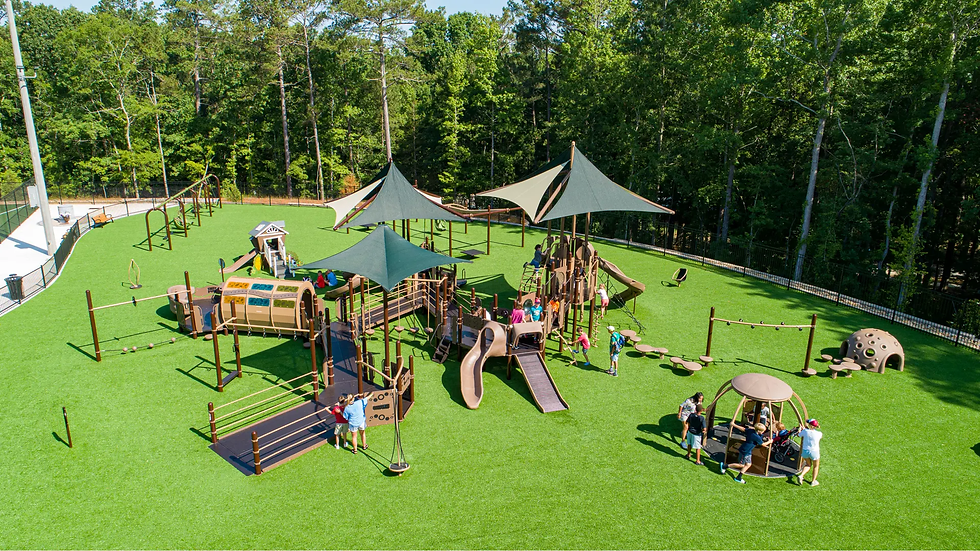What is Inclusive Play
- Ashley Ang
- Jul 15, 2025
- 2 min read
Updated: Aug 21, 2025
Imagine walking past your neighborhood playground and seeing a child fully immersed and enjoying playtime. Noticing little ones laughing with glee as they interact with the elements safely and responsibly. Playgrounds are more than just simple physical structures. A well-designed playground allows children of all ages to learn about friendship, courage, imagination, and independence.
But not all playgrounds offer that moment of joy to every child.
That’s where inclusive play comes in.
Inclusive play goes beyond “accessibility.” It means creating spaces where every child, regardless of ability, age, or background, can join in, participate fully, explore safely, and grow alongside their peers. It’s about removing barriers, whether physical, sensory, or social, to ensure that playtime is an inclusive, shared experience.
Here is a deep dive into what inclusive play is and why it matters.
What exactly is inclusive play?
Inclusive play is about integration, not isolation. It is building environments where children can interact side by side safely, freely, and joyfully. Breaking down and learning how to navigate physical, sensory, and social barriers.
How to recognize inclusive playgrounds?
Multiple Access Points

Wide entrance, multiple access points, gentle ramps and sturdy railings.
Friendly Surfacing

Proper surfacing that helps with impact absorption is essential to reducing the severity of the most common playground injuries. Read to understand the difference between EPDM vs Corkeen surfaces.
Social and Cooperative Play Spaces

Play equipment and zones that encourage various children to participate and play together
Ground-Level Play Equipment

Activity diversity and tiered challenges to accommodate different development stages
Sensory-Rich Engagement

Usage of panels with different textures, colours, sounds and interactive features to engage all senses.
Quiet zones

Integration of benches, shaded spots and social hubs for children to take play breaks and where all caregivers can join comfortably.
Safety Measures

Using age-appropriate designs and play equipment.
Why it matters
An inclusive playground sets the stage for important child development. Mixed-ability interactions often encourage teamwork, friendship, empathy and social skills. Forming a kinder, more understanding generation.
It also provides a way for children to build strength, balance, coordination, and problem-solving through active, communal play. Mastering accessible equipment can boost their self-esteem and empower children to explore beyond their comfort zones safely and responsibly.
Inclusive playgrounds act as community anchors, fostering unity through accessibility and empathy.
Final Thoughts
Inclusive Play is the new era of public play areas. It is about crafting spaces where every child can laugh, learn, grow, and share in the joy of play. These playgrounds help dismantle barriers, foster empathy, and enrich individual and community well-being.
Championing playgrounds that reflect diversity, creativity, and unity of all kids. Curious about adding inclusive features to your local play area? Want examples, designs, or expert knowledge? Speak to us. Let’s start a conversation!



Comments